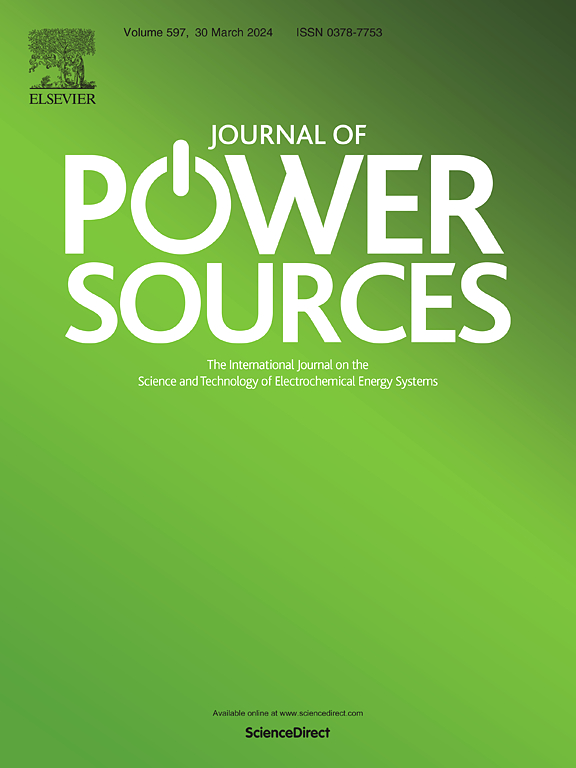Adaptive multi-task learning for battery health prediction: A BiLSTM framework with Bayesian optimization and dynamic task weighting
IF 7.9
2区 工程技术
Q1 CHEMISTRY, PHYSICAL
引用次数: 0
Abstract
Accurate and reliable prediction of lithium-ion battery health is critical for extending battery life, ensuring operational safety, and optimizing energy management in electric vehicles and energy storage systems. However, battery degradation exhibits complex, nonlinear, and battery-specific patterns, which pose significant challenges to conventional single-task learning methods. This study proposes a Multi-Task Learning Bidirectional Long Short-Term Memory framework that concurrently predicts key battery health indicators, including cycle life, voltage decay rate, and temperature change rate. To enhance model efficiency and adaptability, we introduce an adaptive prediction window, optimized via Bayesian hyperparameter tuning, which dynamically adjusts based on the battery's degradation characteristics. Furthermore, a dynamic task weighting mechanism is incorporated to adjust task priorities based on a loss-driven strategy, thereby improving learning efficiency and prediction accuracy. Experimental validation using the NASA battery dataset demonstrates that the proposed framework significantly outperforms traditional machine learning models, yielding substantial improvements in the accuracy of all health indicators. The adaptive prediction window and dynamic task weighting mechanisms are pivotal in enhancing model generalization and robustness. These findings highlight the framework's potential for real-time battery health monitoring and predictive maintenance applications.
电池健康预测的自适应多任务学习:贝叶斯优化和动态任务加权的BiLSTM框架
准确、可靠地预测锂离子电池的健康状况对于延长电池寿命、确保运行安全、优化电动汽车和储能系统的能量管理至关重要。然而,电池退化表现出复杂、非线性和电池特有的模式,这对传统的单任务学习方法提出了重大挑战。本研究提出了一个多任务学习双向长短期记忆框架,该框架可同时预测电池的关键健康指标,包括循环寿命、电压衰减率和温度变化率。为了提高模型的效率和适应性,我们引入了一个通过贝叶斯超参数整定优化的自适应预测窗口,该窗口可以根据电池的退化特性进行动态调整。此外,该算法还引入了一种基于损失驱动策略的动态任务加权机制来调整任务优先级,从而提高了学习效率和预测精度。使用NASA电池数据集的实验验证表明,所提出的框架显着优于传统的机器学习模型,大大提高了所有健康指标的准确性。自适应预测窗口和动态任务加权机制是增强模型泛化和鲁棒性的关键。这些发现突出了该框架在电池实时健康监测和预测性维护应用方面的潜力。
本文章由计算机程序翻译,如有差异,请以英文原文为准。
求助全文
约1分钟内获得全文
求助全文
来源期刊

Journal of Power Sources
工程技术-电化学
CiteScore
16.40
自引率
6.50%
发文量
1249
审稿时长
36 days
期刊介绍:
The Journal of Power Sources is a publication catering to researchers and technologists interested in various aspects of the science, technology, and applications of electrochemical power sources. It covers original research and reviews on primary and secondary batteries, fuel cells, supercapacitors, and photo-electrochemical cells.
Topics considered include the research, development and applications of nanomaterials and novel componentry for these devices. Examples of applications of these electrochemical power sources include:
• Portable electronics
• Electric and Hybrid Electric Vehicles
• Uninterruptible Power Supply (UPS) systems
• Storage of renewable energy
• Satellites and deep space probes
• Boats and ships, drones and aircrafts
• Wearable energy storage systems
 求助内容:
求助内容: 应助结果提醒方式:
应助结果提醒方式:


